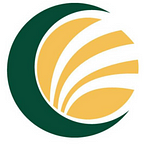SOFT SKILLS, HARD RESULTS
Married to Joya, an IT training and Learning & Development manager, I seem to absorb developments in training almost by a process of osmosis. One trend that I want to encourage is the increasing pressure to abandon the idea of ‘soft skills’. For the uninitiated ‘soft skills’ include influencing, communication, team management, delegating, appraising, presenting and motivating. Many now recognise these as key to making businesses more profitable and better places to work. I argue that they have never been ‘soft’ (with the implication that they were optional or in some measure less important than ‘hard’ skills) but the way professionals relate to and communicate with others has always been a fundamental part of their personal toolkit. How effective is a Business Analyst who cannot conduct penetrating interviews or facilitate a workshop? How would you rate a project manager who cannot read his audience and know whether he should adopt ‘sell’, ‘tell’, ‘collaborate’ or ‘innovate’ styles of communication? HR departments call these ‘soft skills’ because they are difficult to teach and assess but IT/IS professionals must be able to communicate clearly and openly, to secure commitment and to listen and respond empathetically. They also need equally well-honed written skills so that their correspondence (even emails) are as effective as their face-to-face communication.
We are all business professionals in one form or another so we need to balance commercial needs of our employers or clients with the individual needs of staff. Being flexible and able to adapt to the changing needs of an organisation is also an important ‘soft skill’, along with the ability to collaborate with others and influence situations through lateral and creative thinking. In our global marketplace the ability to deal with differences, multiculturalism and other forms of diversity is needed more than ever. Very few organisations are untouched by the ever-widening influence of other cultures and good soft skills facilitate better communication and people’s ability to manage differences effectively. So-called soft skills can be developed and kept sharp through good training and lots of practise. Most of all remember that …‘Soft skills’ produce hard results!
